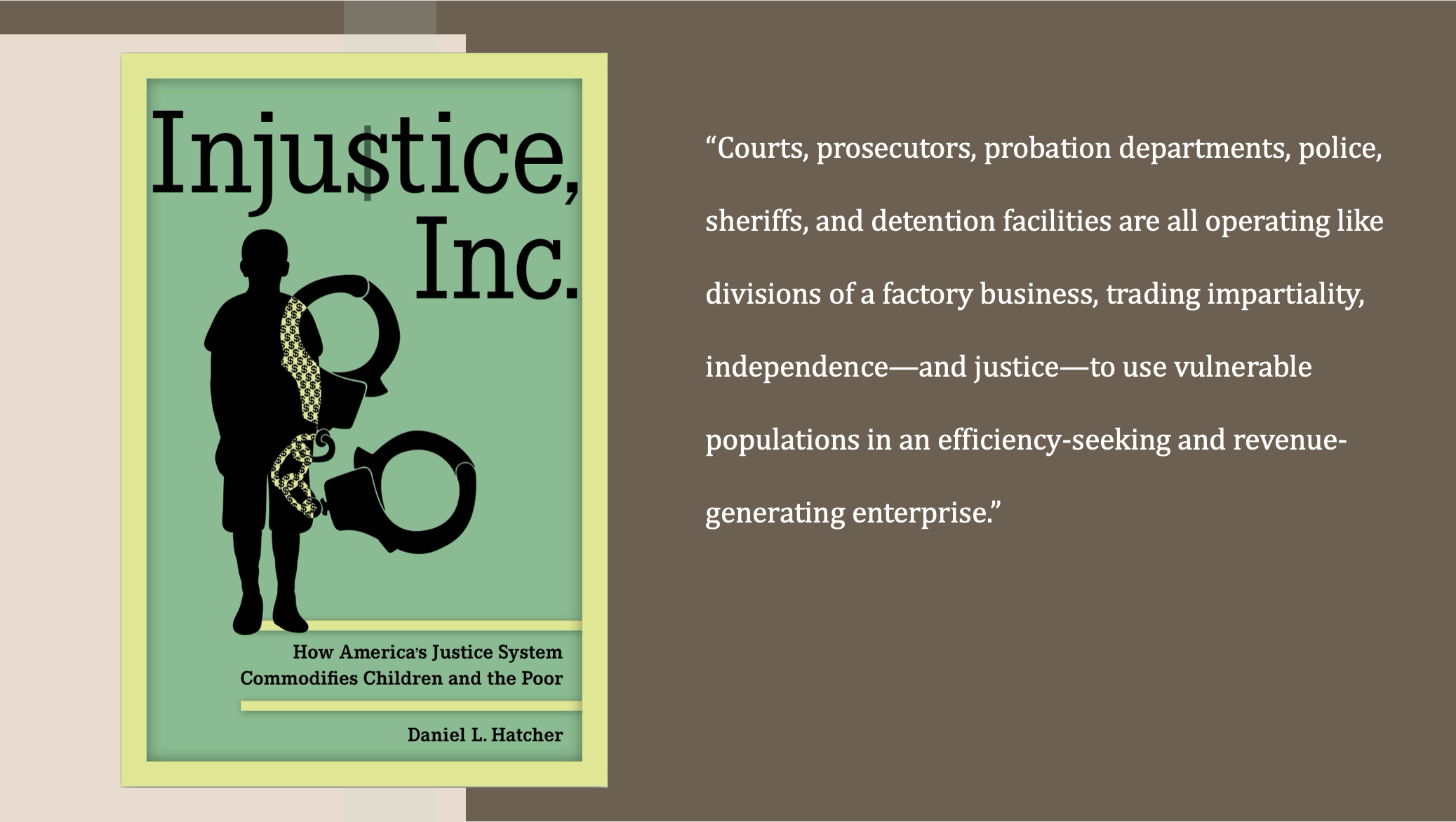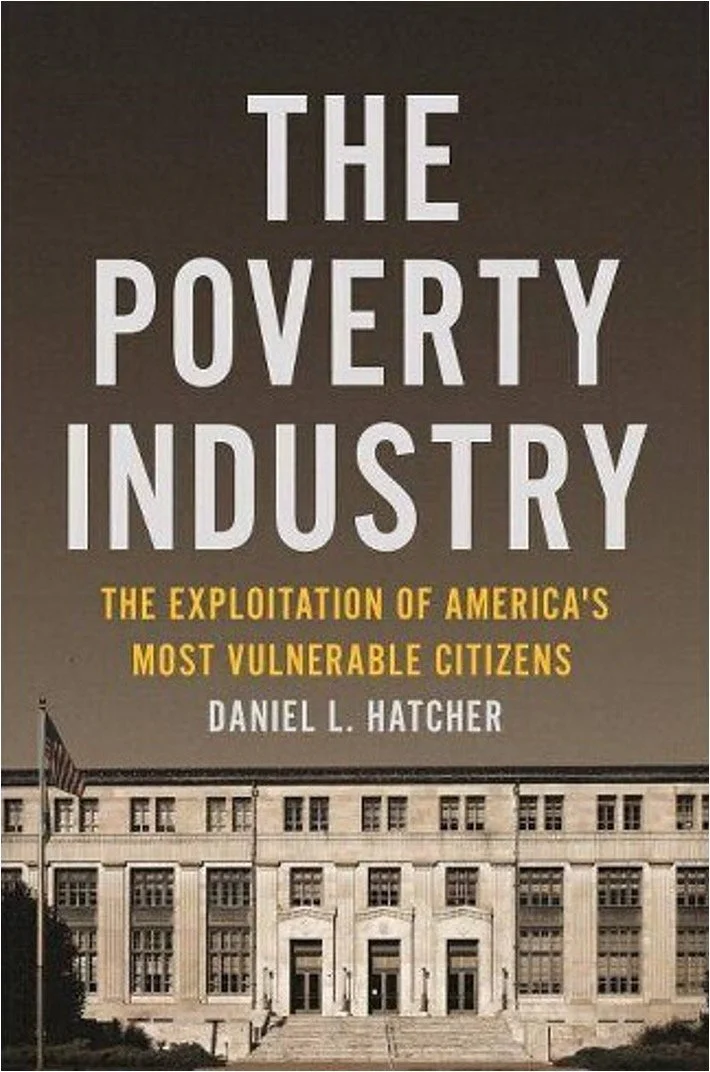Daniel L. Hatcher
Professor of Law
University of Baltimore School of Law
Civil Advocacy Clinic
“Institutions of justice are not built of marble or brick but of people within, and the words ‘Equal Justice under Law’ carved over the towering pillars of the Supreme Court only have meaning if we give them meaning. Thus, when we encounter systemic threats to the ideals of justice, we cannot feel content or absolved by simply knowing our individual actions are pure when the system around us is not.”
— Daniel L. Hatcher, Injustice, Inc.

"Hatcher exposes an urgent paradox at the heart of American governance: why, and how, are states and localities teaming up with corporations to squeeze profits from societys poorest? The Poverty Industry breaks fresh ground. Every American who cares about the intersection of private profits and public justice should read this book, and wrestle with its arguments. Hatcher marshals years of legal experience and research towards fulfilling the muckrakers calling: 'to comfort the afflicted, and afflict the comfortable.' But he also goes a step further. In The Poverty Industry, he combines a practitioners depth with a journalists flair for storytelling, to generate the first complete account of a little-known phenomenon that should be of interest to every reader with a conscience."
-- Sarah Stillman, staff writer for The New Yorker
Daniel L. Hatcher has long been a scholar, advocate, and teacher on poverty and justice. He is currently a Professor of Law in the University of Baltimore’s Civil Advocacy Clinic and author of "Injustice, Inc.: How America's Justice System Commodifies Children and the Poor," and "The Poverty Industry: The Exploitation of America's Most Vulnerable Citizens."
Before joining the faculty in 2004, Hatcher was an assistant director of advocacy with the Maryland Legal Aid Bureau. He previously worked as a staff attorney for Legal Aid representing children pulled into the Baltimore foster care system, and he represented adult clients in all poverty law matters—including public benefits, housing, consumer, and family law issues. He was also a senior staff attorney with the Children's Defense Fund where he worked on policy development and legislative advocacy in areas impacting child and family poverty. Hatcher's current work at the University of Baltimore School of Law includes teaching in the Civil Advocacy Clinic, in addition to Contracts and other courses.
Hatcher's scholarship has revealed how government institutions of welfare and justice generate revenue by commodifying the vulnerable populations they exist to serve, often with the assistance of private contractors—violating ethics, laws, constitutional requirements, and agency purpose. His 2006 article, Foster Children Paying for Foster Care, exposed how state foster care agencies take children’s Social Security benefits and other resources and has spurred litigation and legislative reform across the country. His additional articles uncovered the commodified harm and legal concerns of multiple child support cost recovery strategies, child welfare revenue schemes, Medicaid maximization and diversion strategies, nursing home revenue schemes, school-based Medicaid revenue schemes, vast contractual partnerships with private revenue contractors, and more—all undermining agency purpose and diverting funds intended to help vulnerable populations into state revenue and private profit. His first book, The Poverty Industry (NYU Press, 2016), further revealed the seemingly endless revenue mechanisms used by human service agencies, subverting their missions and partnering with private companies to use vulnerable populations as revenue tools. His second book, Injustice, Inc. (UC Press 2023), reveals even greater concerns: how our very systems of justice are also part of the poverty industry, including foundational courts, prosecutors, probation, police, and detention facilities, all using unconstitutional and unethical contractual revenue operations—like a factory—extracting revenue and resources from impoverished children and families.
Hatcher’s scholarship and advocacy has attracted national attention, including extensive press coverage, federal and state legislative investigations, testimony before Congress and several state legislatures, his amicus brief to the U.S. Supreme Court, citation in multiple Congressional Research Service reports, requests to draft federal and state legislation—and has spurred litigation and law reform across the country.

